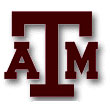|
Nanotechnology Colloquium
|
Colloquium Date: Monday, December 17, 2007
|
A bi-weekly event to present and discuss issues related to developments, applications and commercialization of nanotechnology.
ECO-NANO: THE IMPACT OF ENGINEERED NANOMATERIALS ON THE ENVIRONMENT
Vicki Colvin, Ph.D.
Professor of Chemistry and Chemical & Biomolecular Engineering at Rice University,
as well as Director of its Center for Biological and Environmental Nanotechnology (CBEN)
(VIDEO CONFERENCED FROM THE HOUSTON OFFICE OF WINSTEAD PC)
Abstract:
Traditionally, nanotechnology has been motivated by the growing importance of
very small (d < 50nm) computational and optical elements in diverse technologies.
However, this length scale is also an important and powerful one for living
systems. At Rice, we believe that the interface between the 'dry' side of
inorganic nanostructures and the 'wet' side of biology offers enormous opportunities
for medicine, environmental technologies, as well as entirely new types of nanomaterials.
As part of our work on the potential biological applications, we also consider
the unintended environmental implications of water soluble nanomaterials. Given
the breadth of nanomaterial systems, we use a carefully selected group of model
nanoparticles in our studies and focus on natural processes that occur in aqueous
systems. We characterize the size and surface-dependent transport, fate and facilitated
contaminant transport of these engineered nanomaterials. Models from larger
colloidal particles can be extended into the nanometer size regime in some cases,
while in others entirely new phenomena present themselves. We also consider
biological interactions of nanoparticles and specifically address the interactions
of a classic nanomaterial, C60, with cellular systems. While the water-suspendable
nano-C60 nanocrystal is apparently cytotoxic to various cell lines, the closely
related fully hydroxylated, C60(OH)24, is non-toxic, thus producing no cellular
response. Similarly, we have also found that functionalized single-walled carbon
nanotubes are non-toxic to cells in culture. More specifically, as the functionalization
density of the SWNT increases, the nanotube becomes more inert to cultures.
Bio: Vicki Colvin, Ph.D
Dr. Vicki Colvin received her Bachelor's degree in chemistry and physics from
Stanford University in 1988, and in 1994 obtained her Ph.D. in chemistry from
the University of California, Berkeley, where she worked under the guidance of
Dr. Paul Alivisatos. During her time at the University of California, Berkeley,
Colvin was awarded the American Chemical Society's Victor K. LaMer Award for her
work in colloid and surface chemistry. Colvin completed her postdoctoral work at AT&T Bell Labs.
In 1996, Colvin was recruited by Rice University to expand its nanotechnology
program. Today, she serves as Professor of Chemistry and Chemical & Biomolecular
Engineering at Rice University, as well as Director of its Center for Biological
and Environmental Nanotechnology (CBEN). CBEN was one of the nation's first
Nanoscience and Engineering Centers funded by the National Science Foundation.
One of CBEN's primary areas of interest is the application of nanotechnology to the environment.
Colvin has received numerous accolades for her teaching abilities, including Phi
Beta Kappa's Teaching Prize for 1998-1999 and the Camille Dreyfus Teacher Scholar
Award in 2002. In 2002, she was also named one of Discover Magazine's "Top 20
Scientists to Watch" and received an Alfred P. Sloan Fellowship. Her research in
low-field magnetic separation of nanocrystals was named Top Five (no. 2 of 5)
Nanotech Breakthroughs of 2006 by Forbes/Wolfe Nanotech Report.
Colvin is also a frequent contributor to Science, Advanced Materials, Physical
Review Letters and other peer-reviewed journals, having authored/co- authored
over 75 articles, and holds patents to four inventions.
|
|
|
VENUE: You may attend the presentation from any
one of these law offices of Winstead PC or from UT Dallas
|

|
AUSTIN: Winstead PC
401 Congress Av., Ste 2100
Austin, TX 78701
512-370-2800
|

|
COLLEGE STATION: Texas A&M University
Wisenbaker Building (WERC), Room #049,
College Station, TX 77843;
979-845-8912
|

|
DALLAS: The University of Texas at Dallas,
The School of Management,
800 West Campbell Road, Room SOM1.502 map
Richardson, TX 75080; 972-883-4568
|

|
HOUSTON: Winstead PC
1100 JPMorgan Chase Tower
600 Travis Street
Houston, TX 77002
713-650-8400
|

|
SAN ANTONIO: Winstead PC
700 N. St Mary St., Ste 1900
San Antonio, TX 78205
210-277-6800
|

|
THE WOODLANDS: Winstead PC
600 Town Center One
1450 Lake Robbins Drive
The Woodlands, TX 77380
281-681-5900
|
|
|
Program begins at 11:30am with a complimentary lunch provided by Winstead PC.
Presentation begins at 12:00pm.
Event Coordinators:
Richard Fink 512-339-5020x130 dfink@appliednanotech.net
Max Roundhill 512-339-5020x120 roundhill@appliednanotech.net
Chairman: Dr. Zvi Yaniv
Registration deadline is Friday, December 14 at 5:00 PM Central.
To register, please send an email to Deepika Misra
dmisra@winstead.com with your preferred attendance location.
|
| |
|
|
NANOMATERIALS APPLICATION CENTER
Walt Trybula, Ph.D.
Director
Texas State University
San Marcos, TX
(512) 245-6062
|
DVDs of selected presentations from previous
speakers are available for a small fee (contact
Max Roundhill mroundhill@appliednanotech.net)
NanoExpress, a monthly email newsletter, is
devoted to providing information on technological
advances, applications, and business news to
nanotechnology professionals. To subscribe, go to
the web link
http://www.txstate.edu/nac/nanoexpress.htmlx
Return to the Schedule Page
|
|